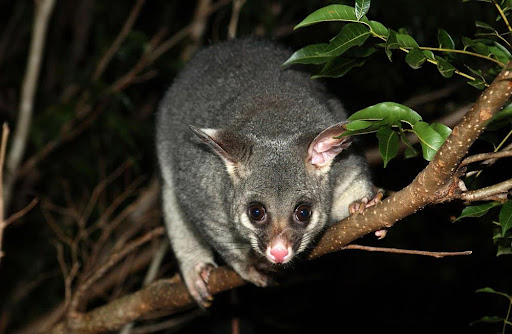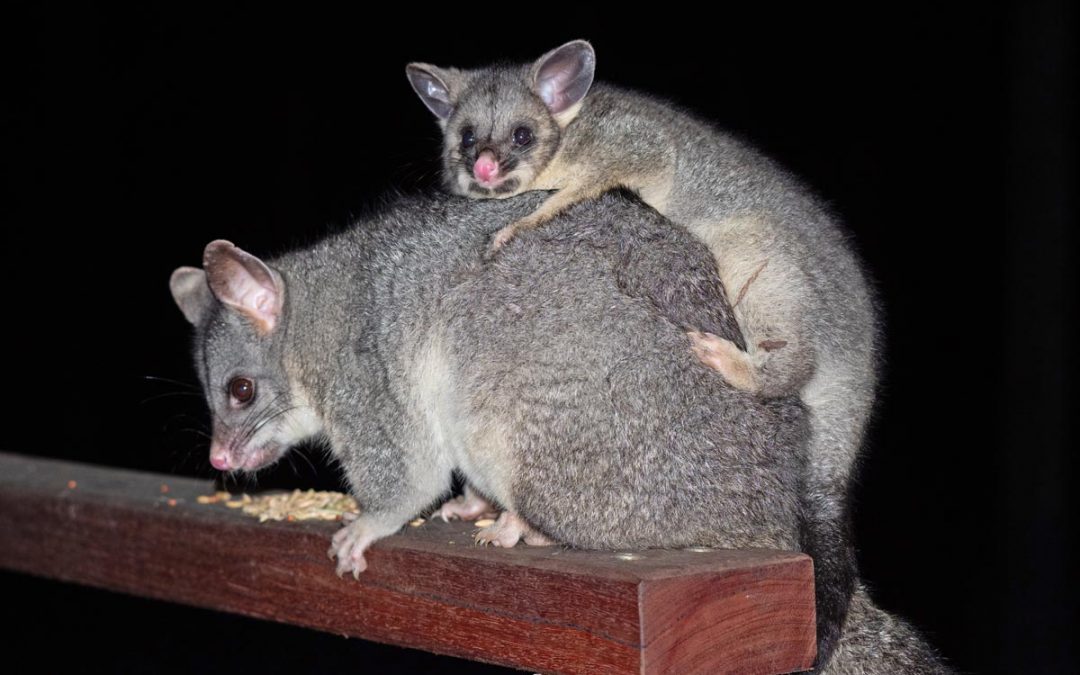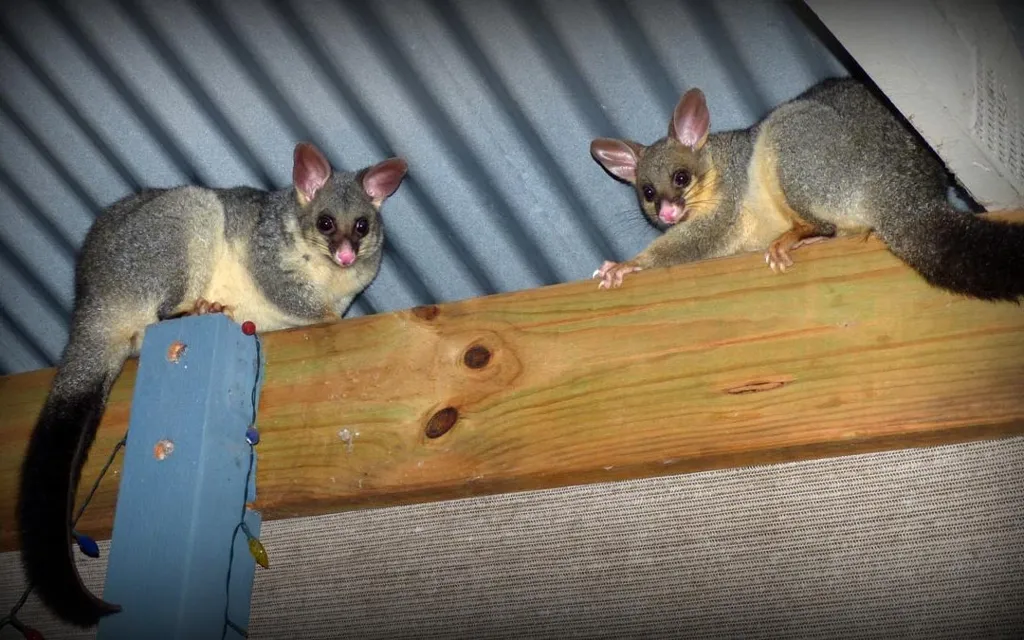
Are Possums Dangerous to Humans?
Yes, possums can be dangerous, though not in the way most people think. They’re not naturally aggressive. But when cornered, a possum may bite, scratch, or spread harmful diseases through droppings and parasites.
At Allstate Pest Control, we’ve protected thousands of homes and businesses in South Australia for over 35 years. We’re trusted by families, schools, and councils across Adelaide to handle wildlife pests, especially the sharp-clawed, nest-building kind. Possums included.
Let’s break it all down for you. What possums do, why they act out, and what you should never do if you spot one in your backyard or roof cavity.
What Are Possum Defensive Behaviours?
If a possum feels threatened, it won’t go down quietly.
It might growl, hiss, or bare its teeth. It may even lunge.
That’s not because a possum is inherently dangerous. It’s simply scared.
Possums, especially common brushtail possums, are prey animals. They’re wired to defend themselves from predators like owls, dogs, or humans. When backed into a corner, they might:
- Bite with sharp teeth
- Scratch with strong claws
- Release a foul-smelling liquid
- Or “play dead” to escape.
It’s nature’s panic button, and it can get messy.
Also Read: What Does Possum Look Like?
Do Possums Pose Health Risks to Humans?
Yes, they do.
Direct contact or exposure to possum droppings and urine can pose real health risks.
Possums may not attack unprovoked, but they carry parasites and bacteria that don’t belong in your ceiling or kitchen.
What Diseases Can Possums Spread?
Here’s where it gets serious. According to research and local wildlife experts:
- Leptospirosis can spread through the urine of certain animals, such as possums, especially in damp roof spaces.
- Salmonella has been found in possum droppings, which can contaminate surfaces and food.
- Mites, ticks, and fleas that live on possums can be transferred to pets or humans.
- Possums are known to be reservoirs for buruli ulcers, a flesh-eating bacterial infection, although it’s rare.
While possums look cute, they’re still wild animals. Handling them without gloves or letting kids play near possum nesting material is risky.
Why Do Humans Get Bitten by Possums?
It’s not common, but it happens. Most possum bites occur when someone tries to pick one up, block its exit, or disturb its nest boxes.
Possums have up to 50 teeth, which is more than other mammal. So, they are good at giving a bite.
Brushtail possums may live in your roof, garage, or shed, especially if there’s warm insulation, nesting material, or easy access to pet food. And if you accidentally corner one?
It’ll fight its way out.
Possums don’t go looking for a fight, but they won’t back down when they feel threatened. Keep kids, pets, and curious fingers away from their hiding spots.
Protect your house from a pest outbreak, get expert advice today
 or
or
How to Prevent Negative Interactions with Possums
Possums are a common sight in South Australia. So, rather than panic, take preventative steps.
Here’s how to keep the peace between humans and possums:
- Remove food sources, such as open compost bins, fallen fruit trees, or pet food, from verandas.
- Block entry points in your roof, wall vents, and eaves. Possums love a cosy roof space.
- Trim trees near your roofline to reduce access. They can leap 2–3 metres if needed.
- Avoid confrontation. Never try to trap or move one yourself.
- Install nest boxes in your yard to redirect them away from your ceiling.
If you ever need help with roof inspections, sealing or possum removal in Adelaide? Allstate Pest Control can sort that out quickly. Call us on 08 8371 1277.
What to do if a possum enters your home
First, stay calm.
Second, don’t touch it.
Turn off the lights and leave a door or window open. Give it space to escape on its own.
If it refuses to leave or appears distressed, contact a licensed wildlife handler or pest control service, such as Allstate Pest Control. Trapping common brushtail possums is regulated in South Australia. They can’t be relocated more than 50 metres and must be released safely near their capture site.
Who can trap common brushtail possums?
In South Australia, only licensed wildlife handlers can trap or relocate possums.
According to the Australian Department for Environment and Heritage, it’s illegal to kill or move a possum without permission under the National Parks and Wildlife Act 1972.
At Allstate Pest Control, we collaborate with licensed professionals to ensure that every solution is safe, legal, and humane. We won’t harm your wildlife. We help control it with proper approvals.
Are Possums Dangerous or Misunderstood?
They’re mostly misunderstood.
Possums aren’t naturally aggressive or out to attack your kids or pets. But like all wild animals, they’ll defend themselves when they feel vulnerable.
They can carry diseases, cause roof damage, and trigger allergic reactions through their fur or faeces. In the wrong place, they’re a problem. In nature, they’re part of the ecosystem.
So no, not every possum is dangerous. However, a possum can be dangerous when cornered, sick, or living on your roof without permission.
The best course of action is to prevent them from nesting near you.
Frequently Asked Questions
Is it bad to have possums around your house?
It can be. Possums are wild animals. When near your roof, they may cause significant damage, especially if they chew insulation, scratch ducts, or urinate on your ceiling. They also attract predators, especially if you leave pet food out at night.
Are Australian possums dangerous?
Yes and no. Australian possums, such as the common brushtail possum, are protected wildlife. They’re not inherently dangerous, but they may scratch or bite if handled. Their droppings can spread disease, so it’s best to avoid direct contact.
What do you do if a possum approaches you?
Stay still. Don’t scream or run. Let it pass, and avoid blocking its escape route. If it doesn’t move, back away slowly. Then call a pest control professional at Allstate for help.
Will a possum try to bite you?
Only if it feels threatened. Possums generally avoid confrontation but will bite if cornered, scared, or picked up. Never attempt to remove one from your yard or roof without professional support.
Do possums nest in roof spaces or gardens?
Yes. They often seek dry, dark spaces, such as ceiling voids or sheds, especially when searching for nesting material. Possums may also settle in nest boxes in your garden if there are nearby trees and shelter.
Get Help Now. Call Pest Control
Still unsure whether the possum on your roof is harmless or a risk? Don’t guess. Get expert advice. Contact Allstate Pest Control or call 08 8371 1277 for safe, legal, and fast possum solutions. We’ll help you stay safe, avoid bites, and keep your home or business protected, 24/7.





